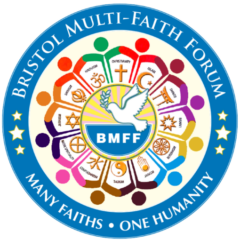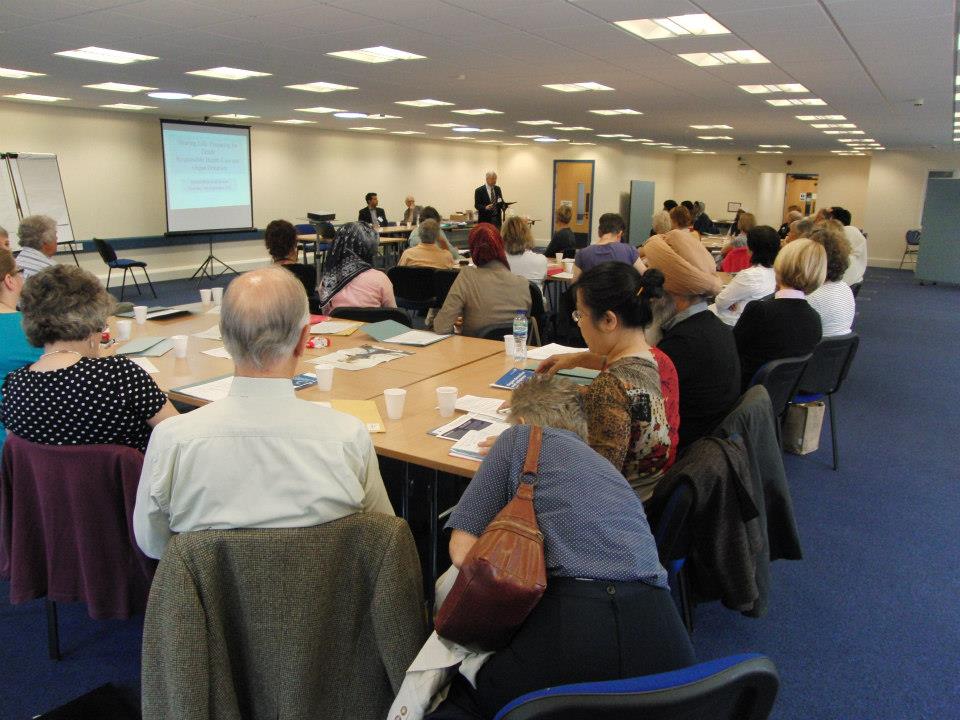Sharing Life, Preparing for Death – Responsible Health Care and Organ Donation
Feedback from the break-out sessions by table
-
Practical and Pastoral Issues
We looked at the very worrying BME stats whereby BME people are 25% of waiting lists for donors, have far higher refusal rates, wait longer, have higher failure rates.
How best to disseminate information about organ donation etc to our communities?
- When they’re young, without frightening them, making it ok to talk about death
- in Secondary schools
- Tell people they can register online, via smartphone app, Facebook, Twitter
- Via sermons in houses of worship – need to educate imams, priests, rabbis etc so that everyone is confident to deliver an accurate and useful message. Nota ser to convince people what they must do but to encourage them to look into it, and work out what they would want done one day. So many congregants lack knowledge of whether it’s even allowed in their faith or not, so this would help them make an informed choice.
- Via community groups, youth groups, health groups, football, corner shops, supermarkets
BMFF could offer organ donation as a sermon topic so that faith leaders can address it, ideally all in the same week or month. However, Muslim and other faith leaders would first need to discuss it among themselves, as a variety of theological interpretations do exist. Faith leader pronouncements can help and can also be damaging so this needs to be done with care. Goal: to enable people to enquire and make their own decisions.
We need to know the actual stats here in Bristol for BME (Afro-Caribbean and South Asian) people waiting for a kidney donor, on dialysis etc.
How do we prompt these health message conversations (not pre-prepared solutions)?
- Best way is to use existing, strong community networks
- For example, if Mr Mukhtyar Singh, recipient of a kidney transplant, were to tell his story, it would open up the topic so that people could make their own choice.
- Sikh Channel on TV is very influential for that community
Call to action: how can we individually and collectively promote these informed conversations?
Action: Mukhtyar to organise a meeting to discuss this and get debate going about how to get these messages started in the communities.
-
How to help people with end of life decisions
This requires education, starting with young children, don’t be afraid to discuss
Conversations about this need to be timely/early, i.e. not in times of crisis
We want people to feel equipped to make the decision within their own family
Need to release people to enquire about their own tradition
many assumptions about death and dying are culturally, not scripturally, based
Hesitancy regarding organ donation, we just don’t know whether our faith allows it. Well before moment of heart stopping. No compulsion that everyone should give their entire bodies.
Need to consult with people, inform people and see their wishes as sacred.
Some people may have the issue that they may wish to donate but it is clinically not possible.
-
Spiritual Journey and what death means from a faith perspective
What is chaplaincy?
- Ministry and support at point of need, listening, being alongside people
- Let them share their own spiritual biography (chaplains cannot access their faith data from intake forms). Wait for family to tell us their religion.
- Absolutely no proselytising.
Nurses
- Many seem to have very little or no faith-related knowledge including the specific needs of various groups e.g. Rastafarian patients
- Some did not know about how the chaplaincy operates, or whether/when services happen
Chapels in hospitals or hospices
- Have largely been replaced by multifaith spaces of sanctuary
- People of any faith or none, may find comfort in a quiet space that is set aside for this purpose
Privacy/dignity as death approaches
- ICU has adapted, make a point of stepping back to allow families to come forward
- Inappropriateness of conducting end of life rituals in an open ward where priest as well as large number of family may come together
- Can private rooms be used? Often reserved for those with infectious diseases rather than nearness of death
- When someone is dying, they undertake a spiritual life passage/journey
- It’s a very precious and charged time, emotions run high
- A relationship of trust with the medical professionals is key
- The meaning of death itself varies: an end, a beginning, a cycle, a connection
- People can gain enriched understanding of the different traditions around this journey through attending interfaith dialogue.
Issues around the next generation(s)
- Increase of secularity on the one hand but huge/growing spiritual awareness on the other
- We need to avoid imposing our own personal faith perspective
- With younger people, we need a new form of language to explain/help them explore the metaphysical and spiritual aspects of life, e.g. poetry and art, as well as Scriptures
- Majority of people in prison are of no faith
Hospices
- Lack of clarity as to who can use them
- Not for Christians only (but name such as St Peters can be confusing)
- Some people frightened to go there as they think it’s only to die and not to live
Education
- Children are never too young to talk about/look at these issues in an appropriate way. One group member mentioned on a recent school visit that 50% of Year Two (age 6 – 7 year olds) knew someone who’d died.
- Can we make better use of schools to explore the richness of faiths and their broad unity?
- Discussing death and sense of spirituality
- Explore with them the meaning of living and of dying: what is a good life? A good death? (this was the topic of an evening seminar conducted by the Bristol Inter Faith Group a few years ago)
Notes written by Valerie Russell Emmott

